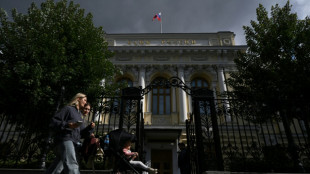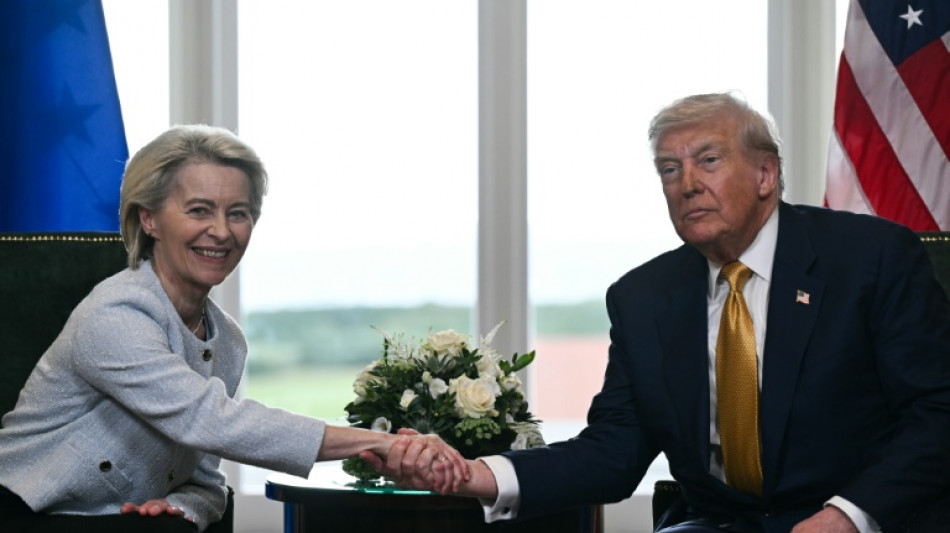
-
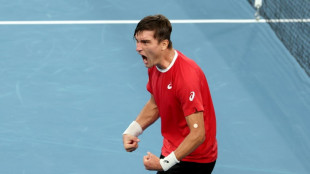 Collignon stuns De Minaur as Belgium take 2-0 Davis Cup lead over Australia
Collignon stuns De Minaur as Belgium take 2-0 Davis Cup lead over Australia
-
Mourning Nepalis hope protest deaths will bring change

-
 Carreras boots Argentina to nervy 28-26 win over Australia
Carreras boots Argentina to nervy 28-26 win over Australia
-
Nepal returns to calm as first woman PM takes charge
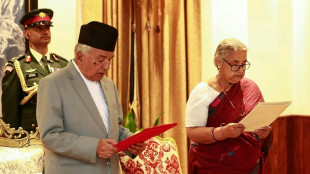
-
 How mowing less lets flowers bloom along Austria's 'Green Belt'
How mowing less lets flowers bloom along Austria's 'Green Belt'
-
Too hot to study, say Italian teachers as school (finally) resumes
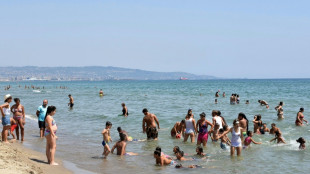
-
 Alvarez, Crawford both scale 167.5 pounds for blockbuster bout
Alvarez, Crawford both scale 167.5 pounds for blockbuster bout
-
Tokyo fans savour athletics worlds four years after Olympic lockout
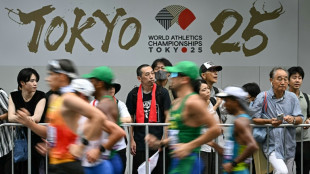
-
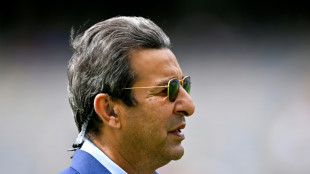 Akram tells Pakistan, India to forget noise and 'enjoy' Asia Cup clash
Akram tells Pakistan, India to forget noise and 'enjoy' Asia Cup clash
-
Kicillof, the Argentine governor on a mission to stop Milei
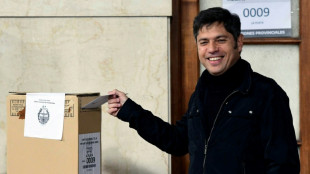
-
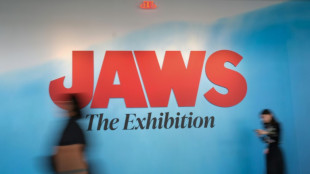 Something to get your teeth into: 'Jaws' exhibit marks 50 years
Something to get your teeth into: 'Jaws' exhibit marks 50 years
-
Germany, France, Argentina, Austria on brink of Davis Cup finals
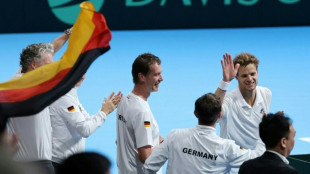
-
 War with Russia weighs heavily on Ukrainian medal hope Doroshchuk
War with Russia weighs heavily on Ukrainian medal hope Doroshchuk
-
Suspect in Charlie Kirk killing caught, widow vows to carry on fight
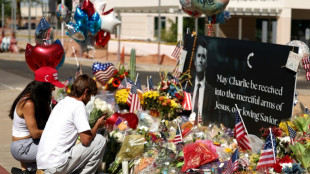
-
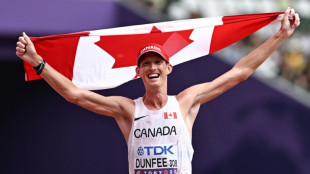 Dunfee and Perez claim opening world golds in Tokyo
Dunfee and Perez claim opening world golds in Tokyo
-
Ben Griffin leads PGA Procore Championship in Ryder Cup tune-up

-
 'We're more than our pain': Miss Palestine to compete on global stage
'We're more than our pain': Miss Palestine to compete on global stage
-
Ingebrigtsen seeks elusive 1500m world gold after injury-plagued season
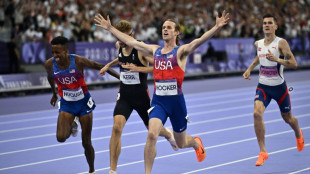
-
 Thailand's Chanettee leads by two at LPGA Queen City event
Thailand's Chanettee leads by two at LPGA Queen City event
-
Dolphins' Hill says focus is on football amid domestic violence allegations
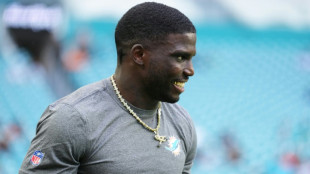
-
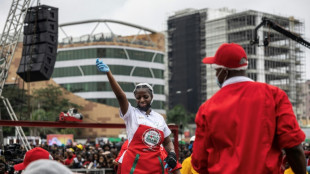 Nigerian chef aims for rice hotpot record
Nigerian chef aims for rice hotpot record
-
What next for Brazil after Bolsonaro's conviction?
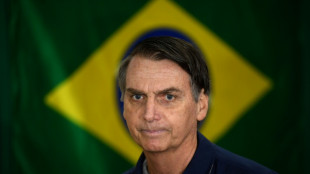
-
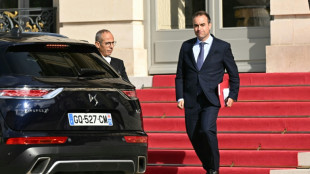 Fitch downgrades France's credit rating in new debt battle blow
Fitch downgrades France's credit rating in new debt battle blow
-
Fifty reported dead in Gaza as Israel steps up attacks on main city
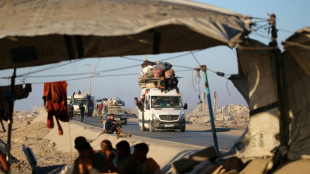
-
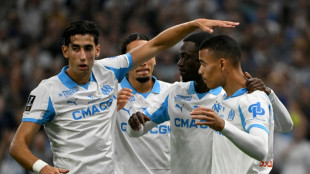 Greenwood among scorers as Marseille cruise to four-goal victory
Greenwood among scorers as Marseille cruise to four-goal victory
-
Rodgers calls out 'cowardly' leak amid Celtic civil war
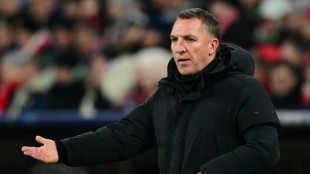
-
 Frenchman Fourmaux grabs Chile lead as Tanak breaks down
Frenchman Fourmaux grabs Chile lead as Tanak breaks down
-
Germany, France, Argentina and Austria on brink of Davis Cup finals
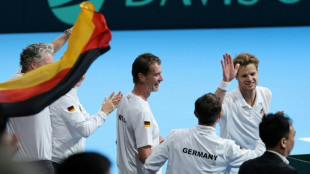
-
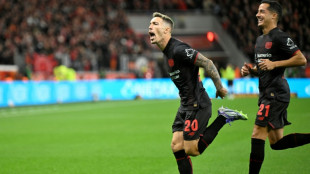 New coach sees nine-man Leverkusen beat Frankfurt
New coach sees nine-man Leverkusen beat Frankfurt
-
US moves to scrap emissions reporting by polluters
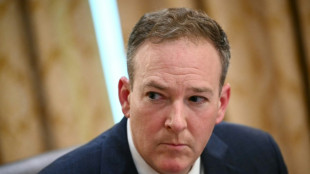
-
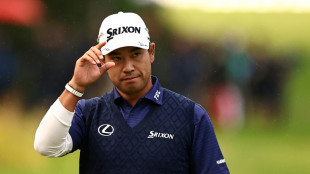 Matsuyama leads Ryder Cup trio at PGA Championship
Matsuyama leads Ryder Cup trio at PGA Championship
-
US to stop collecting emissions data from polluters
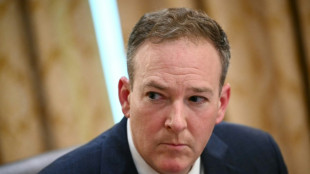
-
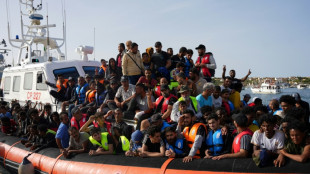 Pope Leo thanks Lampedusans for welcoming migrants
Pope Leo thanks Lampedusans for welcoming migrants
-
Moscow says Ukraine peace talks frozen as NATO bolsters defences
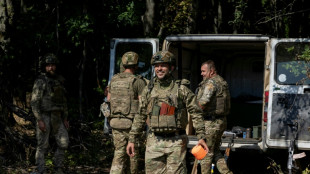
-
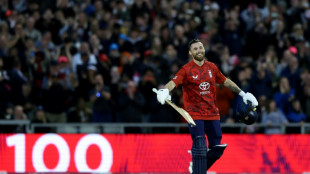 Salt's rapid ton powers England to record 304-2 against South Africa in 2nd T20
Salt's rapid ton powers England to record 304-2 against South Africa in 2nd T20
-
Noah Lyles: from timid school student to track's showman

-
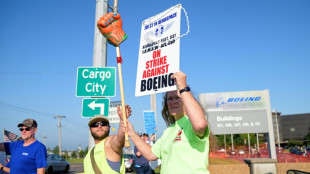 Boeing defense workers reject deal to end strike
Boeing defense workers reject deal to end strike
-
Germany, Argentina close in on Davis Cup finals
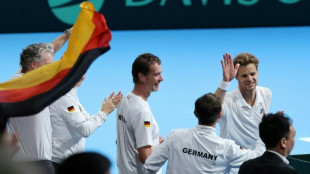
-
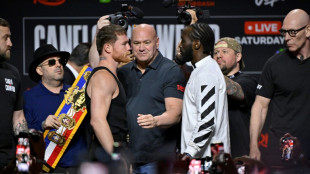 Alvarez, Crawford both tip scales at 167.5 pounds for title bout
Alvarez, Crawford both tip scales at 167.5 pounds for title bout
-
Armani will lays path to potential buyout by rival
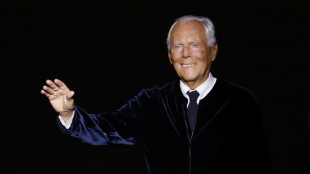
-
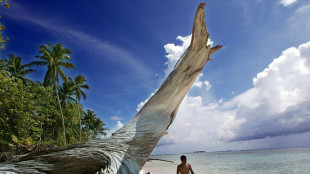 'We don't want to become a memory': minister of endangered Tuvalu
'We don't want to become a memory': minister of endangered Tuvalu
-
Ireland coach 'fully confident' Wafer fit for Women's Rugby World Cup quarter-final
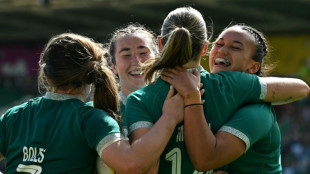
-
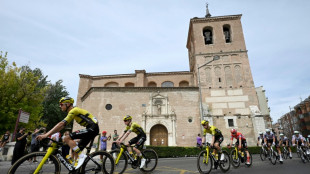 Philipsen wins sprint for Vuelta treble
Philipsen wins sprint for Vuelta treble
-
Nepal ex-chief justice Karki becomes next PM after protests
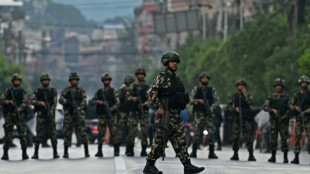
-
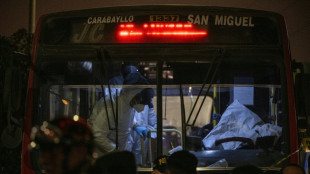 Peruvians live in fear as extortion runs rampant
Peruvians live in fear as extortion runs rampant
-
Philipsen wins Vuelta stage 19 for treble
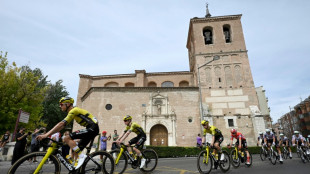
-
 UN expert urges protection for indigenous Botswana people
UN expert urges protection for indigenous Botswana people
-
Costa Rica arrests four in murder of Nicaraguan exile
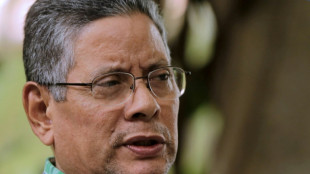
-
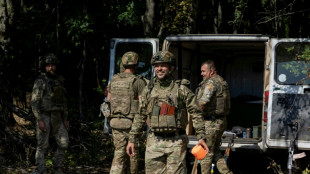 Moscow says peace talks frozen as Zelensky warns Putin wants all of Ukraine
Moscow says peace talks frozen as Zelensky warns Putin wants all of Ukraine
-
Strasbourg skipper Emegha to join Chelsea at end of season
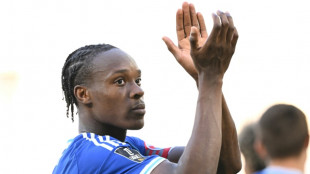

EU defends Trump trade deal in face of backlash
The European Union on Monday defended its trade deal with President Donald Trump, with EU capitals and businesses sharply divided on an outcome some branded a "capitulation".
"I'm 100-percent sure that this deal is better than a trade war with the United States," top EU trade negotiator Maros Sefcovic told journalists.
European Commission President Ursula von der Leyen clinched the framework accord with Trump on Sunday after dashing to Scotland as the August 1 deadline loomed for steep levies that threatened to cripple Europe's economy.
EU exports are now set to face across-the-board tariffs of 15 percent -- higher than customs duties before Trump returned to the White House, but much lower than his threatened 30 percent.
The 27-nation bloc also promised its companies would purchase energy worth $750 billion from the United States and make $600 billion in additional investments -- although it was not clear how binding those pledges would be.
"This is clearly the best deal we could get under very difficult circumstances," Sefcovic said.
Full details of the agreement -- and crucially which sectors could escape the 15-percent levy -- will be known in the coming days, although the EU says it has avoided steeper tariffs on key exports including cars and medicines.
- European criticism -
The reaction from European capitals -- which gave von der Leyen the mandate to negotiate -- ranged from muted to outright hostile.
French Prime Minister Francois Bayrou said it was a "dark day" for Europe and that the accord was tantamount to "submission".
Speaking for Europe's biggest economy, German Chancellor Friedrich Merz said his country would face "substantial damage" from the tariffs but that "we couldn't expect to achieve any more".
He argued that the deal's negative effects "will not only be limited to Germany and Europe, but we will see the effects of this trade policy in America as well".
Spanish Prime Minister Pedro Sanchez said he gave his support for the deal "without any enthusiasm".
Industry groups in both countries made plain their disappointment, with Germany's main auto sector body saying the 15-percent levy "burdens" carmakers while its VCI chemical trade association said the rates were "too high".
Hungary's Prime Minister Viktor Orban attacked the deal in blunt terms, saying: "Trump ate Ursula von der Leyen for breakfast."
European stock markets dipped later on Monday, wiping out early gains and reflecting unease at terms viewed as lopsided.
"It looks a bit like a capitulation," said Alberto Rizzi of the European Council on Foreign Relations (ECFR).
"The EU accepted a fairly unbalanced deal," he added, saying it delivered a "political victory for Trump".
- Europe security stakes -
Von der Leyen had faced intense pressure from EU states to strike a deal quickly with the bloc's biggest partner and protect a $1.9-trillion trading relationship.
Defending Brussels' approach, Sefcovic warned that a no-deal scenario -- meaning a 30-percent tariff and the prospect of further escalation -- would have risked up to five million jobs in Europe.
Throughout the months-long talks, Brussels prioritised stability and maintaining good relations with Washington over escalation.
Italian Prime Minister Giorgia Meloni, a Trump ally, said the deal had avoided "potentially devastating" consequences.
Hanging over the negotiations was the risk to other areas of cooperation -- such as the war in Ukraine -- if the EU descended into a trade war with its closest security partner.
"It's not only about the trade -- it's about security, it's about Ukraine," Sefcovic told reporters Monday.
Jacob Funk Kirkegaard of the Peterson Institute for International Economics acknowledged it was "clearly an imbalanced deal" if judged purely on trade terms.
"But if you're trying to avoid worse national security outcomes, well then maybe the deal is not so bad," he said.
- Cautious approach -
The EU had sought to ramp up the pressure in the final stretch of talks, fearing a bad deal and higher levies, with countries approving a $109-billion package of counter-tariffs at the last minute.
And states led by France were pushing for a more robust response including the option to deploy the trade "bazooka" known as the anti-coercion instrument.
But the threat of retaliation was consistently framed by Brussels as a last resort should talks fail, and experts suggested the hardening stance may have come too late to make a real difference.
"If the EU had played hardball at the very beginning, it probably could have got a better deal," ECFR's Rizzi told AFP.
B.Baumann--VB

